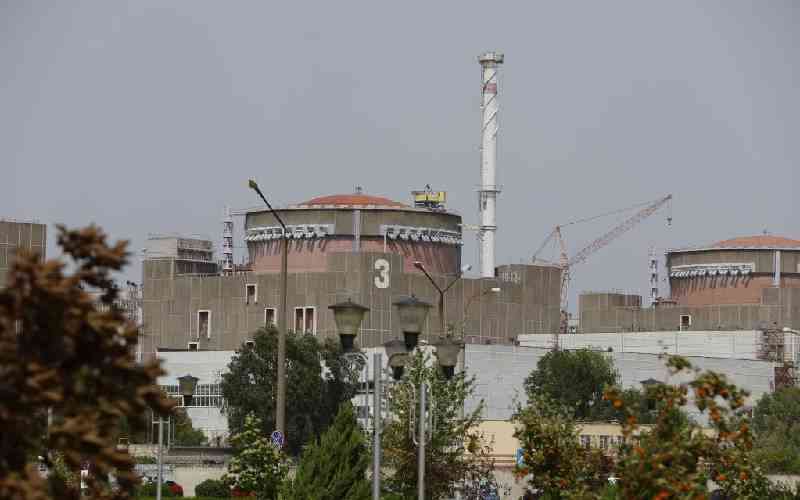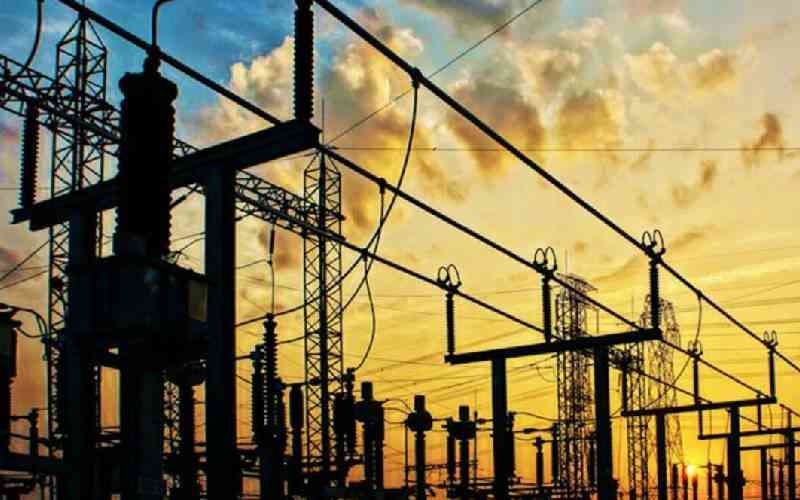By John Njiraini
Government will expand the scope of the special electricity feed-in-tariff to encourage more investments in renewable energies.
Kenya Power and Lighting Company (KPLC) Managing Director Joseph Njoroge said discussions are ongoing to enable large power generation plants qualify for the incentive, intended to promote power generation from renewable sources.
Currently, only small power generation plants with a capacity not exceeding 50 megawatts qualify for the tariff that pay investors 12 US cents per kWh hour for hydro, seven US cents for biomass and nine US cents for wind.
Small power plants
"The Government is working on a review of the feed-in-tariff to facilitate development of green energies," said Njoroge.
 |
LTWP MD Henk Hutting (left) and KPLC Managing Director Joseph Njoroge sign a power purchase agreement. Photo: Jonah Onyango/Standard. |
Speaking after KPLC signed a power purchase agreement (PPA) with Lake Turkana Wind Power (LTWP) to pave way for building a Sh52 billion wind power plant with a capacity of 300 MW, Njoroge said the review would encourage investors to pump money into large plants.
Under the agreement, the power distributor will purchase electricity from LTWP at a fixed cost of Sh7.80 per kWh for the next 20 years when the plant is commissioned in 2012.
Though the tariff is more than three times the amount KPLC buys as bulk electricity from the Kenya Electricity Generating Company (KenGen), Njoroge said the agreement is based on new investments. KPLC buys electricity from KenGen at a cost of Sh2.40 per kWh.
Loan secured
"The KenGen tariff was based on old hydro plants. It is not possible for new investments to attract the same tariff," he said.
He said the extra supply from LTWP, which is 17 per cent of the country’s electricity demand, is expected to stabilise electricity prices that have skyrocketed in recent months, due to dependence on thermal generation due to a prolonged drought.
Stay informed. Subscribe to our newsletter
"We expect prices to come down on the fuel charge component, once we get more power from the new investments," said Njoroge.
The fuel cost surcharge on power bills currently stands at around Sh7.90 per unit, but changes often to fluctuating crude oil prices.
Construction of the plant, billed as the largest wind farm in Africa, comes at a time when the country is searching for cheaper and sustainable sources of energy, to meet demand that is growing at an average of eight per cent annually.
"This is not a simple undertaking, but it is a worthy venture to help Kenya meet energy needs," said Henk Hutting, LTWP Managing Director.
Hutting said funding for the project was secured from the World Bank, the European Investment Bank, French Development Agency and the African Development Bank.
 The Standard Group Plc is a
multi-media organization with investments in media platforms spanning newspaper
print operations, television, radio broadcasting, digital and online services. The
Standard Group is recognized as a leading multi-media house in Kenya with a key
influence in matters of national and international interest.
The Standard Group Plc is a
multi-media organization with investments in media platforms spanning newspaper
print operations, television, radio broadcasting, digital and online services. The
Standard Group is recognized as a leading multi-media house in Kenya with a key
influence in matters of national and international interest.
 The Standard Group Plc is a
multi-media organization with investments in media platforms spanning newspaper
print operations, television, radio broadcasting, digital and online services. The
Standard Group is recognized as a leading multi-media house in Kenya with a key
influence in matters of national and international interest.
The Standard Group Plc is a
multi-media organization with investments in media platforms spanning newspaper
print operations, television, radio broadcasting, digital and online services. The
Standard Group is recognized as a leading multi-media house in Kenya with a key
influence in matters of national and international interest.









